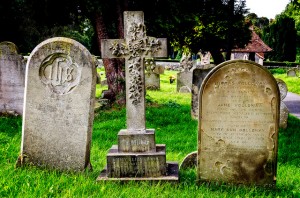The expected, and the unexpected, thing
The novelist Henry James had a long time to consider his death, as he became increasingly ill with pneumonia. His last words are recorded as, “So here it is at last, the expected thing”.
 Waiting to die is a terrible, but expected, thing. We are all doing it, but some of us are more aware of it than others. Some are on their deathbeds, feeling the encroaching burden of illness and age. Some are simply in their beds, not knowing that this will be their last night. Some are sitting on an Indonesian island, uncertain of how soon the end will come. Horrifically, some are descending in airplanes, knowing there are but moments left.
Waiting to die is a terrible, but expected, thing. We are all doing it, but some of us are more aware of it than others. Some are on their deathbeds, feeling the encroaching burden of illness and age. Some are simply in their beds, not knowing that this will be their last night. Some are sitting on an Indonesian island, uncertain of how soon the end will come. Horrifically, some are descending in airplanes, knowing there are but moments left.
Death is not surprising, but its timing and nature might well be. The death of Jesus, commemorated around the world every year during Easter, contains elements that are no surprise at all to people familiar with the religious context of the first-century Middle East. Jesus was a threat to both Jewish religious stability and Roman peace. He didn’t step into line, and to crucify him was the method of the day to keep rebellion in check.
Furthermore, the timing of Jesus’ death should have been no surprise to his followers. Jesus had predicted it, their Hebrew Bibles had prophesied it, and at the Last Supper, Jesus had reinterpreted this key aspect of Jewish history in light of his own imminent execution. There need have been no surprise to those with ears to hear and eyes to see.
But Easter turns out to be a startling surprise, a pivotal point in history where the world is turned upside down (Acts 17:1-9), a completely unexpected thing. The surprise came in the resurrection of Jesus.
The idea of life beyond the grave is not itself a surprise to many of us. Most human beings in most cultures and most times in history have had a strong, if varied, belief in an afterlife. Our instincts incline towards ‘something more’, and we struggle even to imagine that death is simply the end for human beings. It seems to mock all that we stand for.
But the resurrection of Jesus of Nazareth—that’s an unexpected thing. His disciples plainly did not envisage his return from the dead. They were despondent, confused, demoralised. Half of them didn’t believe the women returning from the tomb with the news that his body was no longer there. That he rose, appeared to many people, and opened up his true identity to those baffled travellers on the road to Emmaus, became the cornerstone of the message of these first Christians to the world: he is risen from the dead, and he is Lord and King.
As we wait to die, so those of us who believe wait to be raised. At Easter, we declare our hope—our only hope—that we will share in Christ’s resurrection. He is the first fruits, the first signs of the bountiful future kingdom; we take comfort and strength in him. Just as we do not know when we shall die, we do not know when, in the twinkling of an eye, we will be raised to life imperishable to inherit the kingdom of God. But now we expect it, because God has shown us that death is not the end by raising Jesus Christ.
Dedicated to my godfather, James Gary Harris, who died just after I’d written it, and now awaits the resurrection.
Image credit: Garry Knight via Flickr.
Email This Story
Why not send this to a friend?


